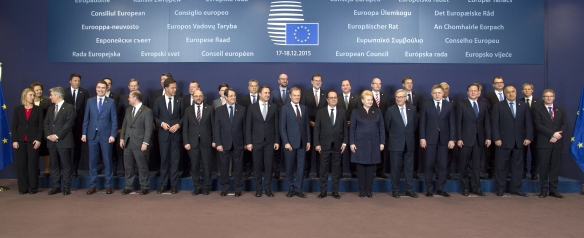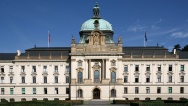Press Advisories
18. 12. 2015 16:40
Leaders of the Member States Have Agreed on Protection of the EU’s External Borders
A key topic during the debate on the migrant crisis was protection of the external border, which has long been a priority for the Czech government. EU leaders agreed that steps that have already been approved, such as setting up functional hotspots, including their sufficient capacity and detention capability, must quickly be put into action. Cooperation with non-EU countries must also continue, including assistance for countries in the western Balkan area, where significant Czech assistance has already been flowing.
Another topic of the meeting was also the “European border and coast guard” project, an idea already promoted by Prime Minister Bohuslav Sobotka at past meetings of the European Council. For this reason, yesterday in Brussels, the Czech prime minister unequivocally supported the European Commission’s proposal. “I welcome the fact that none of my colleagues spoke out against setting up a European border and coast guard service. This proposal needs to be fleshed out as soon as possible and for its implementation to have a real effect in terms of limiting the flow of migrants. We pledged that we would decide regarding the approval of a European border service by the middle of next year,” stated Prime Minister Sobotka.
During Thursday’s working dinner, European partners dealt with Great Britain’s reform proposals, which Prime Minister David Cameron had already presented to the V4 prime ministers prior to the beginning of the European Council. The priority for EU leaders is to keep Great Britain in the EU. Specific requirements will be discussed during the February meeting of the European Council, but some representatives of Member States have already termed London’s proposal to restrict social benefits as problematic. The countries of the Visegrad group have repeatedly stated that they will not support any proposals that would restrict free movement and would lead to discrimination against of other EU residents.
Friday’s meeting of EU leaders was devoted to the subject of an Energy Union, a key topic for the countries of the Visegrad Group. European partner agreed with the need to increase energy security and support for new diversification projects. During the meeting, Prime Minister Bohuslav Sobotka drew attention to the fact that all future projects must be fully aligned not only with the goals of the Energy Union, but also with EU legislation and the rules of the internal market. “I asked our European colleagues to also look upon the controversial Nord Stream II project in this light,” said the prime minister. The Czech government will continue to promote solidarity with countries in the vicinity of the EU, whose energy security may be threatened by risky projects.
At this year’s last summit, heads of state and prime ministers of EU countries also discussed the fight against terrorism, and agreed to improve cooperation between intelligence agencies and exchange of information between Member States. The fight against the financing of terrorism will also be escalated, and completion of the directive on the use of air travel passenger name record data will be brought forward.







